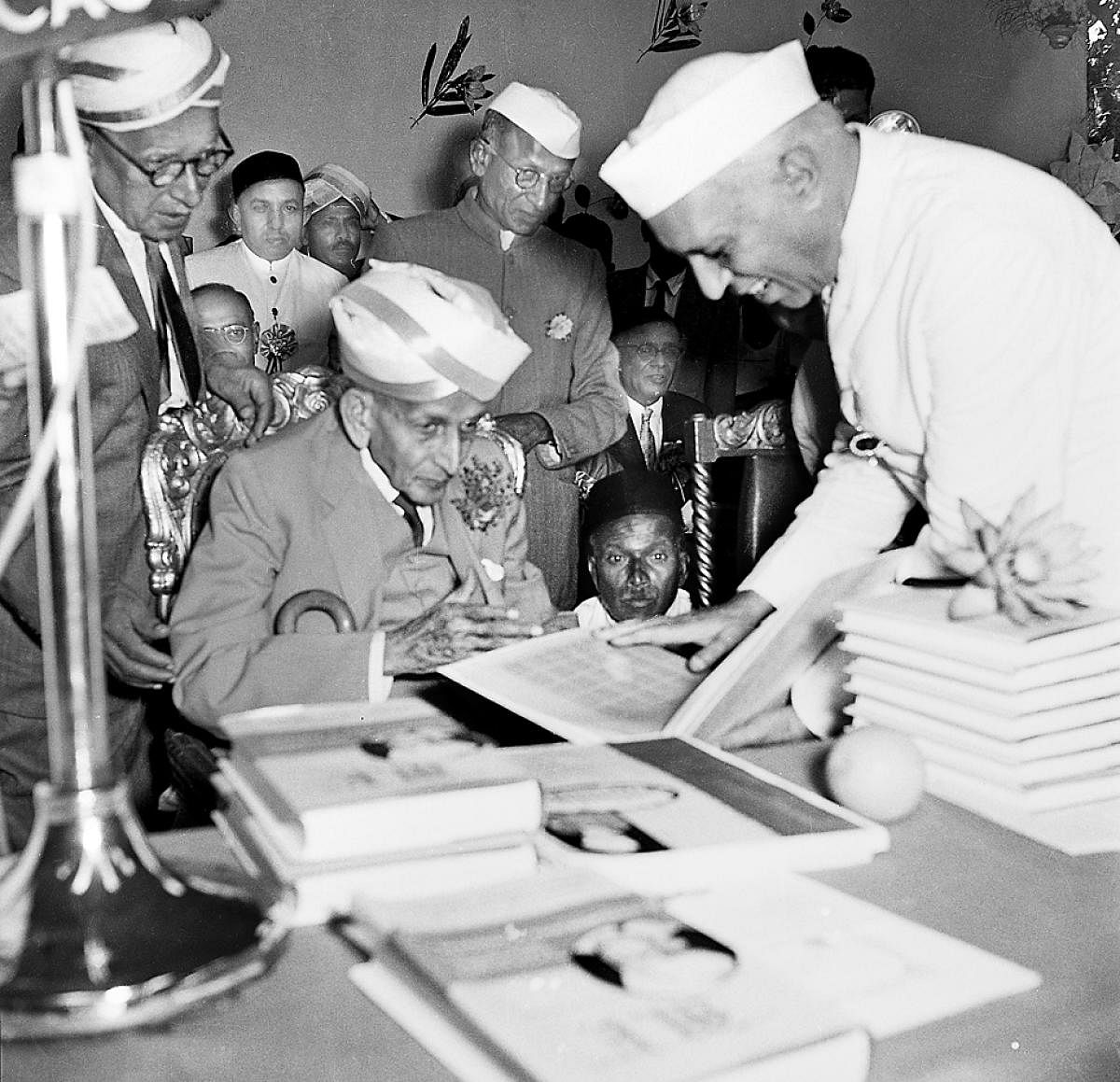The story goes that when he was offered the position of Dewan of Mysore State, he summoned all his relatives and took word from each one of them that she/he will not ask for any favour from him once he becomes Dewan. Only after all of them agreed did he accept the position.
There are many such stories about Mokshagundam Visvesvaraya that bear testimony to the impeccable honesty, integrity and character of the man who dedicated almost his entire life of nearly 102 years in the service of the nation, playing a pivotal role in many engineering projects.
On his 160th birth anniversary, it is hard to find people like Sir MV (as he was popularly known), his ideals, his vision and thinking. But before we lose track of history and his greatness, it is crucial to remember this proud son of Karnataka and his exemplary life to serve as an exemplar and inspiration to current and future generations.
“Dreamer, thinker, and a man of action, not lost in the past but always thinking of the future, living an integrated life, bringing into existence and giving shape to dreams not for himself but for India and the people of India”. This was Jawaharlal Nehru's centenary tribute to Sir MV in Bengaluru in 1960.
A fitting tribute indeed to a man who was a lot more than what most of us know as one of the ablest engineers and the creator of the famous Krishna Raja Sagara (KRS) Dam in Mysuru. He was an eminent engineer (September 15 is celebrated as Engineers Day in commemoration of Sir MV) and builder of modern India, but he was also a visionary, scholar, planner and statesman.
His entire life revolved around work and relentless activity, coupled with discipline and clever time management. He travelled, read prodigiously, wrote books, attended seminars and conferences and gave speeches on varied subjects. Visvesvaraya was a man of few words. At his birth centenary celebrations in Bengaluru in 1960, many dignitaries heaped praises on him. When it was his turn to speak, he stood up and said, “Thank you.” And that was it. It surprised many, but those two words summed up his life’s credo: Talk less, work more.
“He was endowed by God with three qualities -- courage, patience and forethought. He never, in his childhood or later, undertook any venture without planning or foresight. The institutions built by him stand witness to this,” says Visvesvaraya’s grandnephew Satish Mokshagundam, who is also chairman of Visvesvaraya National Memorial Trust.
Born on September 15, 1860, in Muddenahalli, near Bengaluru, Visvesvaraya’s childhood was one of hardship. He lost his father when he was just 12 and the burden of the family fell on his mother. He realised he had to give his best, that there was no substitute for hard work. Be it during early schooling in Chikkaballapur or high school and college in Bengaluru and engineering in Pune, he always topped with distinction. His work life began with the Public Works Department, Mumbai, and from then on, it was a labour of love until the end.
It is impossible to list his achievements in an article such as this. Suffice it to say, there are few fields of thought and constructive endeavours of technical advancement and nation-building in which he did not make a significant contribution. Engineering, in all its branches, particularly those of irrigation, reservoirs, dams and water supply, power supply and bridge building; university education, technological and occupational training, town planning, industry and banking, commerce and manufacture. “Sir MV is a combination of endeavour, adventure, courage, intellect, capacity and strength and thereby enjoys God's grace,” remarked Jayachamarajendra Wadiyar, who appointed him Dewan of Mysore.
In his ‘Memoirs of My Working Life’, Sir MV is gracious enough to attribute his success to the support and encouragement of the Mysore Maharaja.
The legendary nation builder was a strong proponent of industrialisation, and his slogan was ‘Industrialise or Perish’, in direct contrast to Mahatma Gandhi’s ‘Industrialise and Perish’. He wrote the first book on planning in India, Reconstructing India, in 1920, and another in the mid-1930s, Planned Economy for India.
“His idea of modern economy rode on a boundless faith in what technology could do to satisfy ever-expanding human wants,” says Chandan Gowda, Professor of Sociology, Azim Premji University. “This optimism is, of course, no longer tenable. We will need to imagine how he might have revised his thinking in the wake of the climate change threat in the present.”
For all his achievements, awards were aplenty, including a British Knighthood and the Bharat Ratna. When the Bharat Ratna was to be awarded, he sent word to Nehru, “If you feel that by giving this title, I will praise your government, you will be disappointed. I am a fact-finding man.” Nehru appreciated his forthrightness and requested him to accept the award.
Endowed with a sharp intellect, ready wit and repartee, Sir MV was a rare human being who practised what he preached. Although he enjoyed considerable power and influence, there was never the slightest whisper against him of misuse of power. He worked tirelessly till the end, never perturbed by death. Around his 100th birthday, when asked about his longevity, he said, “Death called on me long ago but found me not at home and went away.” But on April 12, 1962, it came again, and this time Sir MV quietly bid goodbye.
(The writer is a senior journalist and author/editor of three books on Bengaluru)
